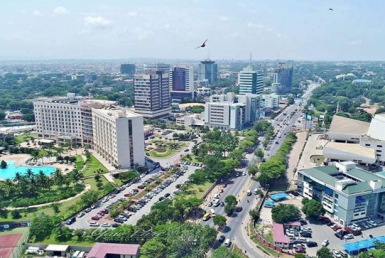Lesotho Highlands Water Project Will Help Achieve Water Security in South Africa by 2026

The second phase of the Lesotho Highlands Water Project (LHWP) is anticipated to provide water security to South Africa by November 2026, as stated last week by Lindiwe Sisulu, South African minister for Human Settlements, Water, and Sanitation.
Highlighting budget preferences for the Water and Sanitation Department, Sisulu mentioned that, in collaboration with her Lesotho colleague, a groundbreaking ceremony had been conducted that signified the construction of Phase II of the Water Project.
Lesotho Highlands Water Supply Project – Phase II
The Lesotho Highlands Water Supply Project Phase II involves constructing the Polihali Dam – a rock-fill concrete-faced dam situated about one kilometer down. With the convergence of the Khubelu Rivers and Senqu (Orange) in the Mokhotlong District, a Gravity Tunnel links the Polihali. The Polihali Dam construction project was initiated in 2019.
Apart from this, the main infrastructure advancements for LHWP Phase II include the Polihali Dam and Appurtenant Works, the Polihali-Katse Transfer Tunnel, construction of access roads, and the establishment of electricity and telecommunication networks.
The Lesotho Highlands Water Supply Project Phase II will be executed as two separate components: 1) a water distribution system to expand water supply to South Africa, and 2) a hydropower generation system to escalate the electricity production capacity Lesotho.
Phase I of this multi-billion four-phased bi-national water transfer and hydroelectric power project was finished in 2003.
Monetary Sanctions
The South African government has sanctioned (under schedule 6b) around $182 million to carry on with the execution of 136 major sanitation and water projects. Another (under schedule 5b) US $121 million to execute 69 more projects.
The schedule 5b and 6b grants are municipal, falling under the provincial bulk framework grant. Schedule 6balludes to a circuitous grant, where the public office is completely liable for the project’s funding. Schedule 5b refers to a direct grant, where the public division legitimately endorses money to municipalities.
According to Sisulu, at least 3.1 million families have benefited from these sanitation and water projects, which began to be implemented after the inception of the Regional Bulk Infrastructure Grant Programme of 2007.
Final Thoughts
Speaking in the National Assembly, minister Sisulu stated that the Water and Sanitation Department had decided to link its existing water reserves to the already present water supply channels to supply adequate water to water-deprived communities. She requested that every water services official prioritize the maintenance and execution of grant-funded groundwork by allocating a minimum of ten percent of their working resources to the conservation of infrastructure within their dominion.
“Via Cooperative Governance and Traditional Affairs (COGTA) Minister, we appreciate that this amount should be ring-fenced, ensuring that water facilities remain operable and render reliable services to all communities while minimizing water losses,” the minister said.




Join The Discussion